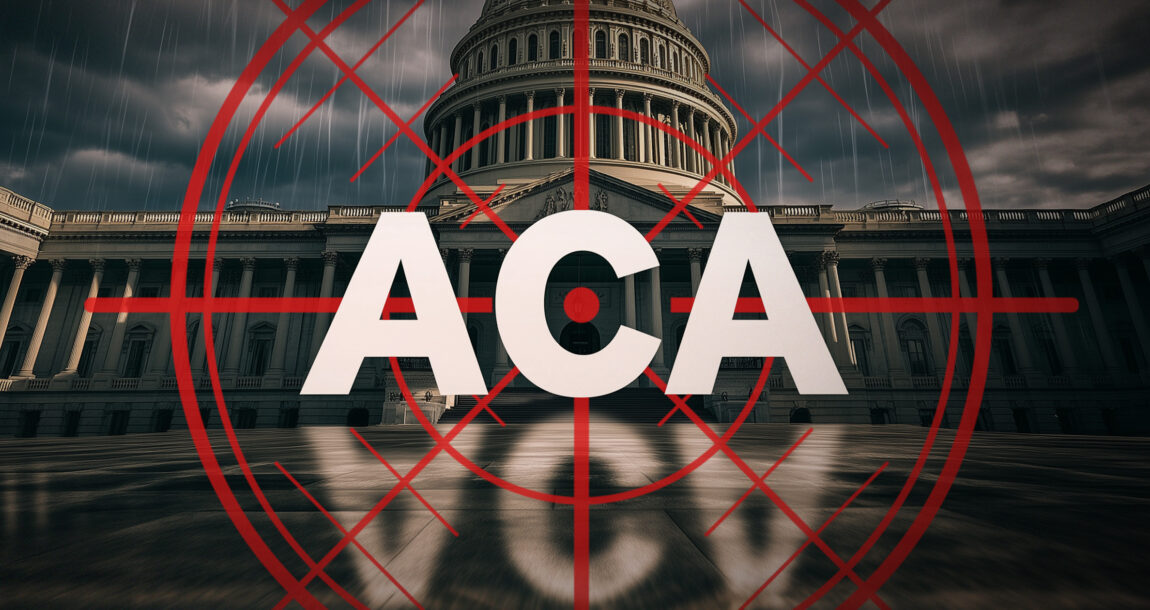Enhanced ACA tax credits in the crosshairs in new Trump term

Health insurers and consumers have a big stake in whether enhanced premium tax credits for coverage on the Affordable Care Act marketplace will continue.
That was the word from the panel taking part ina recent KFF webinar on the future of the ACA now that a new president and a new Congress will address the issue of how much subsidization is necessary and appropriate to get people enrolled in coverage.
The American Rescue Plan Act of 2021 included enhanced marketplace tax credits to enable more Americans, including those in “middle” income brackets to obtain ACA coverage. The Inflation Reduction Act of 2022 extended those enhanced tax credits. But they will expire in 2025 unless Congress acts to keep them.
The ACA market “is way over-subsidized,” said Brian Blase, president of Paragon Health Institute.
“Insurers now make more money from government than they do from the private sector,” he said. “Insurers are increasingly reliant on the federal government for revenue; that’s a problem.”
The enhanced tax credits have been cited as a main reason behind record ACA enrollment for 2025. More than 24 million Americans signed up for Affordable Care Act plans during the open enrollment period for 2025, with huge increases in major Republican-led states.
Blase called for policies to help upper-middle-income households pay for health insurance premiums. The Inflation Reduction Act increased eligibility for ACA tax credits for those with income above 400% of the federal poverty level – or $128,600 for a household of four. If the extended premium tax credits expire, people with incomes above 400% of the FPL could experience significant increases in premiums.
“I think we should expand alternatives to the ACA that would help upper-middle-income households,” he said. “They should have unsubsidized options to choose from.”
He cited short-term insurance plans as one option. Short-term plans tend to have broader provider networks than ACA plans, he said. In addition, he said, “People use their own money to buy short-term plans.
“I think Americans should have the right to spend their own money to buy health plans that meet their needs.”
The ACA has made great coverage gains, resulting in record low rates of uninsured Americans, said Sarah Lueck, vice president for health policy at the Center on Budget and Policy Priorities.
“We’re really at the cusp of, where do we go from here?” she said. “There’s a strong case to be made that people want more financial security and they want to pay lower costs.”
But she cautioned that many policy proposals on Capitol Hill would make it more difficult for Americans to access health care.
“There are lot of ideas floating around Capitol Hill that would put more of the costs of Medicaid on to the states, cutting off affordability in the ACA marketplace and making it harder for people to enroll – this is huge,” she said. “It will make it more difficult to get people enrolled, impose higher costs on enrollees and more red tape to go through – this is going in the wrong direction.”
© Entire contents copyright 2025 by InsuranceNewsNet.com Inc. All rights reserved. No part of this article may be reprinted without the expressed written consent from InsuranceNewsNet.com.
Susan Rupe is managing editor for InsuranceNewsNet. She formerly served as communications director for an insurance agents' association and was an award-winning newspaper reporter and editor. Contact her at [email protected].





Most high net worth individuals are digitally unprotected
SEO Basics: What is Google E-E-A-T and how to use it
Advisor News
- Global economic growth will moderate as the labor force shrinks
- Estate planning during the great wealth transfer
- Main Street families need trusted financial guidance to navigate the new Trump Accounts
- Are the holidays a good time to have a long-term care conversation?
- Gen X unsure whether they can catch up with retirement saving
More Advisor NewsAnnuity News
- Pension buy-in sales up, PRT sales down in mixed Q3, LIMRA reports
- Life insurance and annuities: Reassuring ‘tired’ clients in 2026
- Insurance Compact warns NAIC some annuity designs ‘quite complicated’
- MONTGOMERY COUNTY MAN SENTENCED TO FEDERAL PRISON FOR DEFRAUDING ELDERLY VICTIMS OF HUNDREDS OF THOUSANDS OF DOLLARS
- New York Life continues to close in on Athene; annuity sales up 50%
More Annuity NewsHealth/Employee Benefits News
Life Insurance News
- Legals for December, 12 2025
- AM Best Affirms Credit Ratings of Manulife Financial Corporation and Its Subsidiaries
- AM Best Upgrades Credit Ratings of Starr International Insurance (Thailand) Public Company Limited
- PROMOTING INNOVATION WHILE GUARDING AGAINST FINANCIAL STABILITY RISKS SPEECH BY RANDY KROSZNER
- Life insurance and annuities: Reassuring ‘tired’ clients in 2026
More Life Insurance News